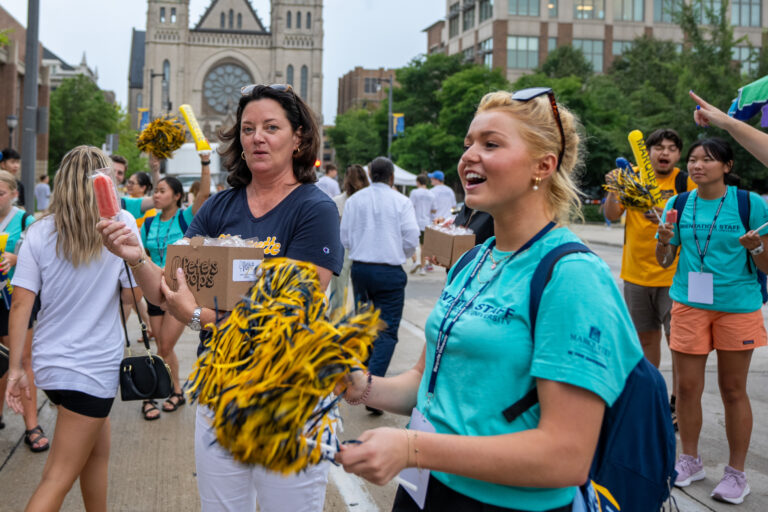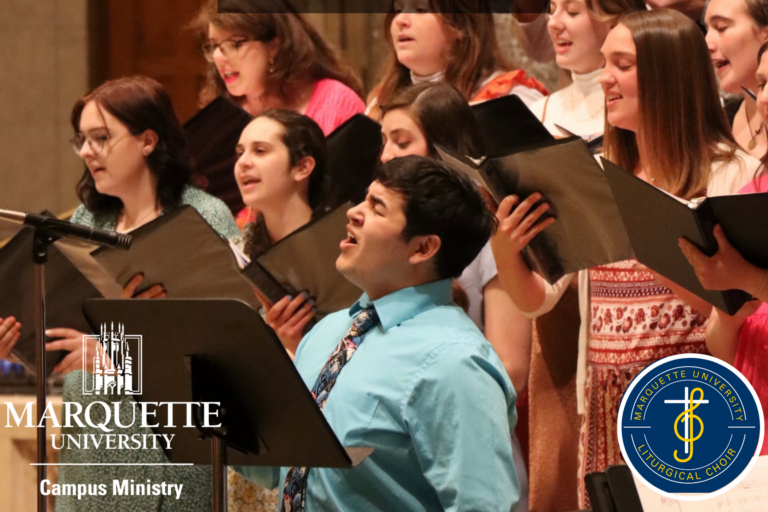Dear Marquette community,
Last week’s Racial Injustice Town Hall was an important conversation in Marquette’s efforts to become more welcoming, inclusive and anti-racist. Our community is hurting and there is an urgency for us to take action to eliminate the injustices that exist on our campus.
I announced several preliminary action steps to improve the climate and inclusivity of our campus including substantially increasing scholarship support for Black students from Milwaukee County; changing our curriculum to provide more focus on racism and injustice; establishing mandatory race and equity training for faculty, staff and students; and hiring counselors to meet the health and wellness needs of our Black students. I want to emphasize that these are just the beginning — a broader campuswide action plan is needed, and we all need to be committed to be part of the solution. My full remarks can be found online.
The most powerful part of the Town Hall for me was hearing the ways in which the panelists have experienced systemic racism at Marquette and in our broader community. Their words were impactful as they shared many stories and moments from their own lives and experiences. They highlight the need for disruption of our status quo as their experiences of racism on campus do not represent who we aim to be at Marquette.
Provost Kimo Ah Yun vividly recalled how his father demonstrated the proper way to respond when pulled over by police — as his father was being pulled over by police — and his own experience of being intimidated in front of his wife while he was pulled over by police. It was sickening and enraging.
There was great illumination from Lisa Lamson, who just completed a term as president of our Graduate Student Association, when she pleaded to faculty not to always call on what might be that one student of color or those few women in their class to always provide the race and gender perspective in discussions.
I appreciated the perspective of Dr. William Welburn, vice president for inclusive excellence, about our responsibility as faculty and staff “to create the opportunities for full participation from everyone in our community. That means no one walks away from this university feeling as though they didn’t get what they thought Marquette was all about in its mission.”
Dr. Stephanie Rivera Berruz, assistant professor of philosophy, read from her open letter to Marquette that tied together our strategic plan and current challenges and asked “for who are we really the difference?” She called on Marquette to reapportion its resources to make more appropriate investments in curriculum; a faculty and staff that reflects the diversity of our community; university offices and centers focused on diversity, inclusion and community engagement; and further opening our doors to welcome students of color.
Frank Cumberbatch, vice president of development for Bader Philanthropies, provided community perspective, especially when he shared what he has learned from conversations with individuals organizing demonstrations in Milwaukee. “There’s no more time for talk,” Frank said he’s been told. “The only thing these folks want now is 100% action.” He said he agrees and added the personal viewpoint, “I want to challenge each and every one of you. This is no time to blame anyone, but for us to rise up at Marquette University and say from this moment forward we are part of the solution. And whether you’re a student, whether you’re a student of color, whether you’re white, whether you’re from rural America or urban, the time has come for all of us to realize that that man’s knee on that man’s neck is a knee on every one of our necks. If we do this from this point forward, this country will achieve its fullest potential.”
I agree with Frank that Marquette must do this — be part of the solution — from this point forward. Yes, we have a long road ahead of us and much work to do. It will be challenging and uncomfortable. But that is exactly what we are called to do as a Catholic, Jesuit institution. None of us has all the answers, but we all need to appreciate that now is a time for each of us to stand together.
At the town hall, I announced the formation of a President’s Commission on Racial Equity. I urge you to join the effort by submitting your application to be on the team here.
Thank you for standing with me as we support our Black students, faculty and staff and work to create a campus free of racism and injustice. We are all Marquette.
Best,
Dr. Michael R. Lovell
President


